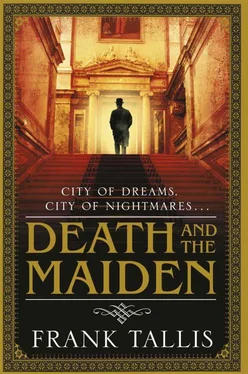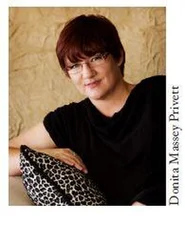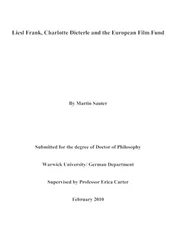Frank Tallis - Death And The Maiden
Здесь есть возможность читать онлайн «Frank Tallis - Death And The Maiden» весь текст электронной книги совершенно бесплатно (целиком полную версию без сокращений). В некоторых случаях можно слушать аудио, скачать через торрент в формате fb2 и присутствует краткое содержание. Жанр: Исторический детектив, на английском языке. Описание произведения, (предисловие) а так же отзывы посетителей доступны на портале библиотеки ЛибКат.
- Название:Death And The Maiden
- Автор:
- Жанр:
- Год:неизвестен
- ISBN:нет данных
- Рейтинг книги:5 / 5. Голосов: 1
-
Избранное:Добавить в избранное
- Отзывы:
-
Ваша оценка:
- 100
- 1
- 2
- 3
- 4
- 5
Death And The Maiden: краткое содержание, описание и аннотация
Предлагаем к чтению аннотацию, описание, краткое содержание или предисловие (зависит от того, что написал сам автор книги «Death And The Maiden»). Если вы не нашли необходимую информацию о книге — напишите в комментариях, мы постараемся отыскать её.
Death And The Maiden — читать онлайн бесплатно полную книгу (весь текст) целиком
Ниже представлен текст книги, разбитый по страницам. Система сохранения места последней прочитанной страницы, позволяет с удобством читать онлайн бесплатно книгу «Death And The Maiden», без необходимости каждый раз заново искать на чём Вы остановились. Поставьте закладку, и сможете в любой момент перейти на страницу, на которой закончили чтение.
Интервал:
Закладка:
Rheinhardt produced his notebook and scribbled a few lines. ‘Where do you live, Frau Marcus?’
‘The twelfth district.’
‘And how long have you been working for Fraulein Rosenkrantz?’
‘Two years.’
‘Who else works here?’
‘Only the gardener.’
‘Fraulein Rosenkrantz has no cook? No laundry maid?’
‘She had no need for a cook. She dines at the Imperial or the Bristol. I take care … I took care of everything.’
‘Yet you do not sleep here?’
‘No.’
‘There is plenty of room.’
‘I stayed here when mistress was ill. In the summer she had a lump in her throat — and some other,’ she blushed, ‘ ladies ’ problems. She was confined to her bed for weeks.’
Rheinhardt looked into the housekeeper’s bloodshot eyes and felt a stab of pity.
‘When was the last time you saw Fraulein Rosenkrantz?’
‘Yesterday afternoon. She said that I could go home early. She wanted to work on the new role.’
‘What sort of mood was she in?’
Frau Marcus hesitated. ‘Quite irritable — but no more than usual. Not really.’
‘Was that how she was?’
‘Irritable? Yes, but her moods didn’t mean very much. She could be irritable one minute and brimming with good humour the next. I suppose it must have been something to do with her gift. They say that, don’t they, that artists are temperamental?’
‘Indeed.’ Rheinhardt wrote the word irritable in his notebook and tapped his pencil on the page. ‘Did you observe any changes in Fraulein Rosenkrantz’s behaviour that, on reflection, you feel might have been tokens of inner torment?’
The housekeeper shook her head.
‘No.’
‘What about over the last week or month? Did you see her crying, for example?’
‘No more than usual.’ Rheinhardt motioned for her to continue. ‘She was easily moved to tears. It didn’t matter whether she was happy or sad. I can’t say that I noticed a difference.’
‘Did she ever speak to you about what was upsetting her?’
‘She wasn’t very happy at the opera house. She used to talk about going to Munich. There was bad feeling between the singers. And she said that the director was very demanding. She used to call him the tyrant.’
‘Bad feeling? What do you mean by that?’
‘I can’t say exactly. But my mistress would say something about so-and-so being jealous or so-and-so having spread a malicious rumour. And she would become upset.’
‘Did she mention anyone in particular?’
‘I can’t remember names, but it was usually a woman. One of the other singers.’
Rheinhardt continued tapping his pencil on the notebook.
‘Do you know whether Fraulein Rosenkrantz intended to receive any guests after your departure yesterday?’
‘I don’t think she did. She wanted to work on her new role.’
Rheinhardt smiled: ‘What was it, incidentally? This role that she was so keen to start working on?’
‘I don’t know very much about opera. But I think it was an Italian name. Was it Lucca or Lucia?’
‘Lucia di Lammermoor.’
‘Yes, that was it.’
Rheinhardt recalled the principal elements of Donizetti’s epic romance.
A beautiful young woman: madness, tragedy.
He closed his eyes and the photographic image of Fraulein Rosenkrantz’s body came into his mind. Once more, he was made uneasy by the way she occupied such a central position within the borders of the Persian rug.
When he opened his eyes again, Frau Marcus was looking at him expectantly.
‘You are quite sure,’ Rheinhardt said softly, ‘that you did not attempt to move your mistress before Doctor Engelberg’s arrival?’
‘Quite sure,’ said Frau Marcus.
2
The pianist of the Cafe Imperial began playing Chopin’s Waltz in B minor. Liebermann recognised it immediately, a curious, wistful melody which trickled down the keyboard over a brisk left-hand part, executed on this occasion with staccato lightness. At the point where the ear expected repose, the melody suddenly began again, creating a peculiar impression of autonomy, as if the music possessed a will of its own and was determined to continue. This rallying quality produced in Liebermann’s mind a corresponding image of a dancing couple who — in spite of being exhausted — revolved, just one more time, only to find themselves caught up in a waltz without end.
‘Maxim, did you hear what I said?’
Mendel Liebermann was looking at his son with an expression of censorious displeasure.
‘No, father … I didn’t.’
Mendel sighed.
‘I said, isn’t it time you thought about getting married?’ Liebermann was stunned and blinked at his father in mute disbelief. The subject of marriage had been assiduously avoided after Liebermann had broken off his engagement with Clara Weiss, the daughter of one of Mendel’s oldest associates. ‘You know how I feel about what you did.’ The old man touched his chest and grimaced as if he was suffering from indigestion. ‘Even so.’
They had never really discussed the broken engagement and, in a sense, there was nothing to discuss. Mendel’s sense of duty and rigid principles precluded any possibility of sympathetic understanding. When his wife had pleaded their son’s case, Mendel had been perfectly capable of grasping her argument: Maxim and Clara were fundamentally incompatible and the marriage would be unhappy. But such considerations were wholly irrelevant once a man had given his word. A man must always keep his word.
‘No, father,’ said Liebermann. ‘I haven’t thought about getting married again. Not since …’ He paused, and summoned the courage to say her name. ‘Not since Clara.’
Mendel took a mouthful of guglhupf — a sponge slice, sprinkled with icing sugar. ‘Do you want to get married?’
Liebermann held his father’s gaze and his reply, when it came, was indignant. ‘To the right person, yes.’
‘And is there anyone …?’ The sentence trailed off as Mendel’s confidence ebbed away. He was not used to speaking intimately with his son and making such an inquiry felt awkward.
‘No,’ said Liebermann, doubly discomfited by his father’s frankness and his own duplicity. There was someone for whom he had very deep feelings, but he was not inclined at that moment to reveal her identity. He was as confused as he had ever been concerning Amelia Lydgate and he knew that he would be incapable of giving a coherent account of his troubled fixation. Besides, she wasn’t Jewish.
‘You’re a young man, Maxim,’ said Mendel, ‘but not that young. When I was your age-’
‘Yes, I know,’ Liebermann interjected. ‘You were married and had already started a family.’
‘Well, you don’t want to end up like your Uncle Alexander, now, do you? An ageing roue?’
‘Father, many years must pass before I can be reasonably described as ageing and I can assure you, whatever you may think, my general conduct is far from dissolute.’
‘I was just voicing a concern, that’s all.’ Mendel took a sip of Pharisaer coffee and, picking up a starched napkin, wiped a residue of whipped cream from his moustache. ‘What happened … with Clara. I don’t think what you did was honourable.’ He waved his hand in the air, as if simply recalling his son’s misconduct had fouled the atmosphere. ‘Nevertheless, you are my flesh and blood and the thought of you being unfulfilled gives me no joy.’
Why was the old man talking to him like this? Had he finally found it within himself to forgive?
‘But I am happy,’ said Liebermann. ‘I have my work, my friends.’
Читать дальшеИнтервал:
Закладка:
Похожие книги на «Death And The Maiden»
Представляем Вашему вниманию похожие книги на «Death And The Maiden» списком для выбора. Мы отобрали схожую по названию и смыслу литературу в надежде предоставить читателям больше вариантов отыскать новые, интересные, ещё непрочитанные произведения.
Обсуждение, отзывы о книге «Death And The Maiden» и просто собственные мнения читателей. Оставьте ваши комментарии, напишите, что Вы думаете о произведении, его смысле или главных героях. Укажите что конкретно понравилось, а что нет, и почему Вы так считаете.












